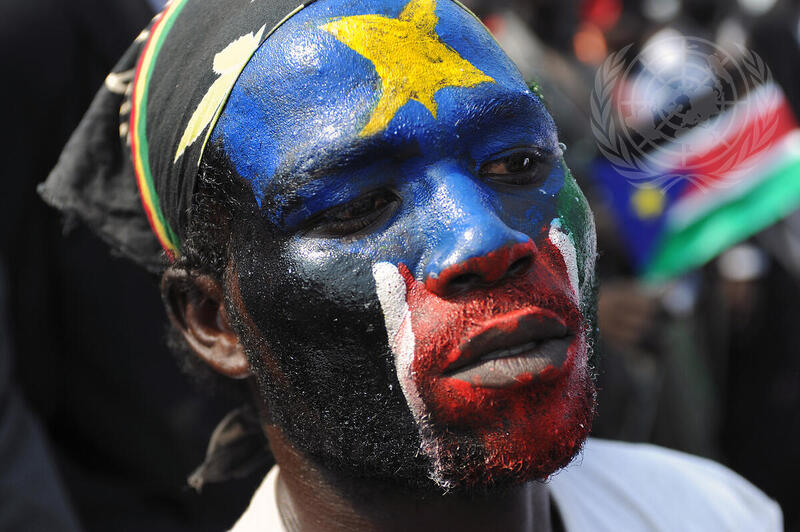This brief article reflects on the meaning of our Independence Day—a day that should have been marked by pride, joy, and peace. However, the reality is different. Many of us live with trauma and psychological distress, deeply rooted in years of marginalization. While some fabricate a fictional national narrative that does not reflect the lived experiences of our people, others have become disillusioned, coming to the painful realization that the SPLM has become worse than its predecessors—namely, Jalaba and the Loondoo (Sudan’s Islamic regime).
The central question is: Why did we seek the independence of South Sudan?
If not all of us, at least the majority—including the SPLM protagonists—would agree that we yearned for freedom, justice, and progressive development in the South. Yet, after nearly 20 years of self-rule (2005–2025), those very SPLM leaders have betrayed us. They have killed, raped, looted, corrupted, and marginalized us—more severely than the so-called Jalaba. Worse still, they offer no tangible justification for these atrocities. Innocent citizens have been arrested and executed without due legal process.
Today, most of us struggle to eat, attend school, or access medical care. We are denied salaries and silenced—ironically, things the Jalaba regime was at least applauded for maintaining. This forces us to question the value of our independence.
Are we truly independent, or were we merely given a chance to taste the hypocrisy of the SPLM leadership? This question, especially the first part—”Are we truly independent?”—can be viewed through two lenses:
- Independence based on the objectives of our ancestral struggles.
- Independence as a sovereign state.
Exploring these lenses leads to a stronger argument for the second question: that we were given only a symbolic independence, masking a deeper hypocrisy.
1. Independence Based on the Objectives of Our Ancestral Struggles
Since 1955, our ancestors vowed to eradicate the social and political injustices perpetrated by the Jalaba regime. Their goal was to preserve the dignity, land, cultures, and lives of Southerners. To achieve that, they called for an autonomous Southern region—an idea that eventually gave birth to the independent Republic of South Sudan. Despite numerous challenges, their achievements were significant: improved access to education and health care, and the construction of infrastructure such as today’s ministry buildings and the iconic Juba Bridge. They brought both dignity and development.
Today, that very dignity is being eroded by us and by foreign neighbors with whom we have had no historic conflict. South Sudanese are insulted, humiliated to some extent spat on by individuals from Ethiopia, Eritrea, and Somalia—and they cannot defend themselves. The lands once protected from Jalaba encroachment have now been grabbed by SPLM elites and even our once-friendly neighbors, Uganda and Kenya.
2. Independence as a Sovereign State
Sovereignty is more than a flag, a map, currency, or a passport. In the 14 years since independence, South Sudan has seen more destruction than during the 6 years leading up to it. Dr. John Garang once said, “Sudan is damaged beyond repair,” but he offered a solution—“New Sudan.” He was visionary and solution-oriented. In contrast, Salva Kiir has been toxic and unproductive.
Today, South Sudan does not have a single paper factory. There are no commercial farms, and at times, the government cannot even produce passports due to a shortage of booklets. How can we then claim to be a sovereign state? We cannot protect our borders or airspace. We cannot provide basic services. These are fundamental indicators of sovereignty, and we have failed on all counts.
At this point, the reality that we were only given a chance to taste SPLM’s hypocrisy—rather than true independence—is irrefutable.
For those who are observant, it is clear:
We are not living in an independent nation—we are enduring the hypocrisy of SPLM rule. From our mental condition to societal collapse, we have seen it all. They accused the Jalaba of oppression and marginalization, yet they have done worse:
- Three-year salary delays, which never happened under the Sudan.
- Bombings targeted at ethnic groups, like in Nasir.
- The slaughter of a pregnant woman and her daughter in Kulipapa.
- Arrests and killings of activists.
- Burning and demolition of churches.
- Grabbing church land.
- Removal of roofs and doors from homes.
- Rampant inflation—$1 now equals 6,000+ SSP.
- Welcoming foreign criminals deported from the US.
The list is endless.
Conclusion
The 2011 referendum was meant to secure our dignity and sovereignty. It failed. It simply shifted our suffering from the Jalaba, whom we knew as enemies, to our internal enemies—the SPLM elite. Therefore, the so-called liberation movement was an illusion, designed to blind us to the real threat from within. And now that we have tasted the full bitterness of their hypocrisy, I conclude that South Sudan’s independence is merely symbolic. A true liberation—one that is inevitable—must now begin.
The writer is a social researcher, analyst, activist, and advocate. He can be reached via onenmath@gmail.com.
The views expressed in ‘opinion’ articles published by Radio Tamazuj are solely those of the writer. The veracity of any claims made is the responsibility of the author, not Radio Tamazuj.




